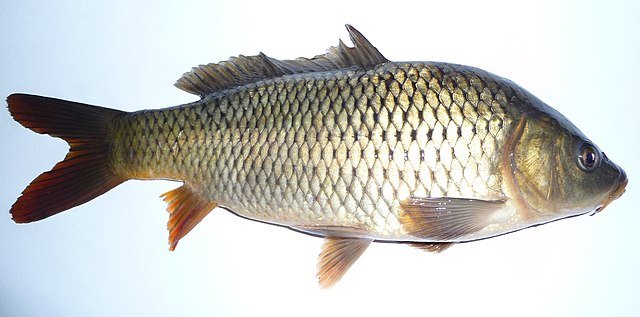
Fish meal (FM) has long been a staple ingredient in aquaculture diets. However, concerns about its sustainability and cost have driven the search for alternative protein sources.
Scientists from Jilin Agricultural University (China) and the Jilin Academy of Agricultural Sciences (China) used common carp (Cyprinus carpio) to evaluate the effects of increasing substitution of fish meal with biofloc meal (BM) on growth performance, digestive function, protein metabolism, lipid metabolism, immunity, antioxidant capacity, and gut microbiota.
Why is biofloc meal a game changer?
Biofloc technology has become an important system for raising aquaculture species due to its benefits in terms of production and reduced environmental impact. However, flocs, when not efficiently managed, become problematic and are often discarded as waste. Converting microbial flocs into meal presents a great alternative to mitigate this issue.
Biofloc meal (BM) has been used in tilapia feeding and carp aquaculture, offering numerous advantages:
- Sustainable: BM production utilizes a natural process within the aquaculture system, reducing dependence on wild fish populations.
- Environmentally friendly: Using bioflocs helps maintain good water quality, minimizing waste and environmental impact.
- Cost-effective: BM production is relatively simple and cost-effective compared to sourcing fish meal.
- Nutritional potency: BM has a diverse nutritional profile, containing essential proteins, probiotics, and bioactive compounds such as poly-β-hydroxybutyrate (PHB) and fucoxanthin.
The experiment: finding the ideal balance
Researchers conducted two trials: a growth trial and a digestibility trial. In the growth trial, carp were fed diets containing varying levels of BM replacing FM protein (0%, 20%, 40%, 60%, and 80%). The results revealed a fascinating trend:
The group of carp fed with 40% biofloc meal (BM40) showed significant improvements in several key areas:
- Growth: Fish fed with BM40 grew faster and more efficiently than those on other diets.
- Digestion: BM40 improved digestive enzyme activity, leading to better nutrient absorption.
- Protein metabolism: BM40 positively influenced genes involved in protein formation, promoting overall health.
- Fat metabolism: BM40 helped regulate genes related to fat storage, preventing the excessive fat accumulation observed in the high BM (80%) group.
- Immunity: BM40 stimulated the fish’s immune system, making them more resistant to diseases. Levels of immune factors (C3, C4, IgM) and antioxidant enzymes (CAT, SOD) increased.
- Antioxidant capacity: BM40 enhanced the fish’s ability to combat harmful free radicals.
- Gut health: BM40 fostered a healthy gut microbiome, crucial for overall well-being.
Digestibility: a slight trade-off
The digestibility trial showed that the proteins and fats in BM were slightly less digestible compared to FM. However, the overall benefits to growth and health suggest this may be a worthwhile trade-off.
Conclusion
“Overall, waste-derived biofloc meal is a promising substitute for FM. The study revealed that replacing 40% of FM with BM could promote the growth, immunity, and antioxidant capacity of common carp,” the scientists conclude.
However, the scientists caution that excessive substitution levels (80%) could reduce growth performance and alter the hepatopancreas and intestinal structure of common carp.
This study demonstrates the potential of biofloc meal as a sustainable and partially effective substitute for fish meal in common carp diets. Replacing 40% of FM with BM promotes healthy growth, improves immunity and antioxidant capacity, and enhances gut health. While complete replacement may not be ideal, BM offers a valuable alternative for aquaculture, reducing dependence on fish meal and promoting a more eco-friendly approach.
The study was funded by the Department of Science and Technology of Jilin Province.
Contact
Li-Fang Wu
College of Animal Science and Technology, College of Animal Medicine, Jilin Agricultural University
Changchun, China.
Email: wulifang5219@163.com
Reference
Wei, X., Meng, S., Wang, Y., Li, L., Zhu, R., Li, D., Liu, S., & Wu, L. (2024). Effects of replacing fish meal with biofloc meal on growth performance, nutrients metabolism, immune response and intestinal microbiota of common carp (Cyprinus carpio). Aquaculture, 591, 741124. https://doi.org/10.1016/j.aquaculture.2024.741124
Editor at the digital magazine AquaHoy. He holds a degree in Aquaculture Biology from the National University of Santa (UNS) and a Master’s degree in Science and Innovation Management from the Polytechnic University of Valencia, with postgraduate diplomas in Business Innovation and Innovation Management. He possesses extensive experience in the aquaculture and fisheries sector, having led the Fisheries Innovation Unit of the National Program for Innovation in Fisheries and Aquaculture (PNIPA). He has served as a senior consultant in technology watch, an innovation project formulator and advisor, and a lecturer at UNS. He is a member of the Peruvian College of Biologists and was recognized by the World Aquaculture Society (WAS) in 2016 for his contribution to aquaculture.
